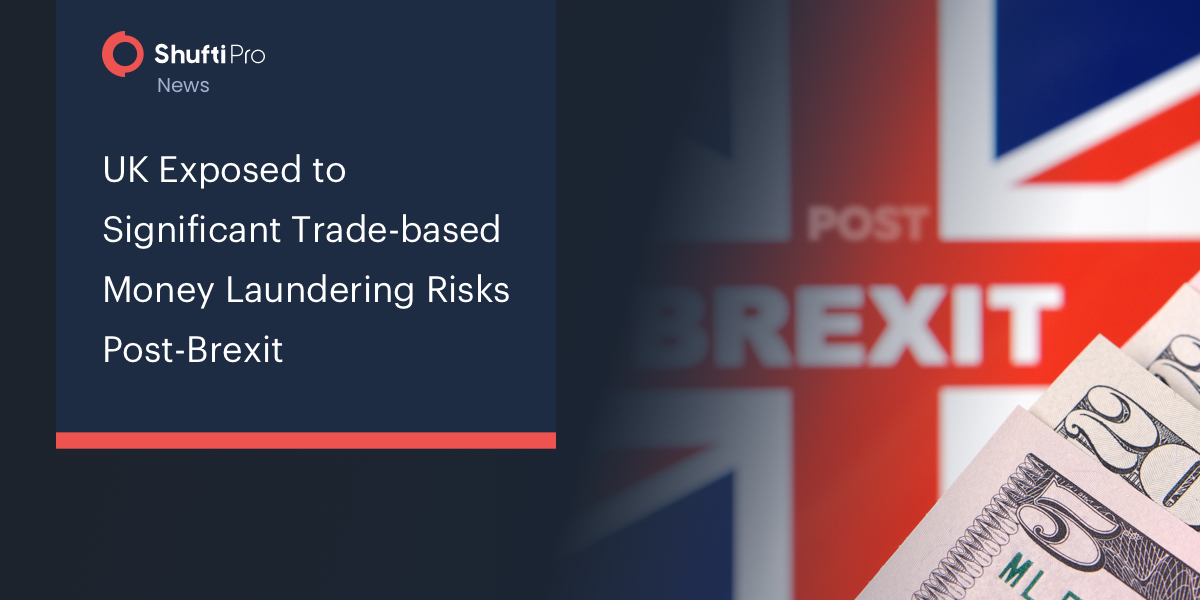UK Exposed to Significant Trade-based Money Laundering Risks Post-Brexit

Risks related to trade-based money laundering in the UK are expected in the upcoming years, according to recent research. The creation of a transaction monitoring utility has been suggested.
Research published in the latest Journal of Money Laundering Control outlines the risks Britain will be facing as the country enters into new trading relationships in the post-Brexit era.
Trade-based Money Laundering (TBML) risks are expected to surge in the upcoming years as compared with an analysis of 2017. The research, conducted by Mariola Marzouk, a doctorate student at the University of Portsmouth and an anti-financial crime technology consultant, follows a national risk assessment on money laundering published by the UK government in 2020.
The following factors have been accounted for in the research.
‘Illicit outflows’
Marzouk states that in the post-Brexit landscape, the enforcement bodies responsible for prosecuting trade-based financial crime are not currently prepared for handling additional money laundering cases. Additionally, Marzouk wrote that regions that are known for “large illicit outflows”, such as Asia, Latin America, and Sub-Saharan Africa, would be a bigger challenge to manage for authorities.
Detected Risks
From the various risks analysed in the research, Marzouk highlighted open account trade as the biggest risk. In open account trading, trading parties are not required to disclose much information prior to forming a relationship. As a result, this payment method would make it difficult for banks to monitor the transactions and conduct due diligence.
The UK’s exit from the EU and subsequent search for trading partners and courtship of trade with developing countries exposes it to trade based money laundering (TBML) risk.https://t.co/ShenlYPSHi
— Irene Kenyon (@IreneKenyon4) July 29, 2021
Monitoring
According to the research, the JMLIT (Joint Money Laundering Intelligence Taskforce) has only been successful in a number of cases. Thus, the formation of a transaction monitoring utility in the UK has been suggested by Marzouk. The transaction monitoring utility would include a number of key banks that will pool information for the effective detection of illicit activities.
Tariff scheme
To encourage trade in the emerging global markets, UK’s government recently announced lower tariffs for developing countries. By observing countries such as Canada, Japan, the US, and the EU, new trade schemes are currently under work. By the end of September 2021, consultation for the scheme will be opened in more than 70 countries.
Countries that fall under the United Nation’s Least Developed Country Framework or the World Bank’s measure of low-income and lower-middle-income countries will qualify for the low tariff scheme.
Suggested Read: Trade-based money laundering – Challenges, detection and prevention

 Explore Now
Explore Now













